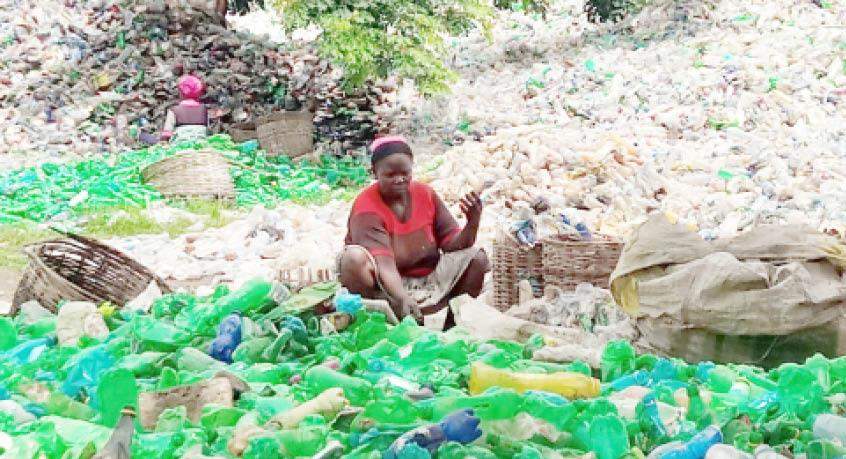Despite the challenges that come with scavenging, some residents of Angwan Bare-Bari, Kado, Abuja have engaged in the trade, which helps feed and educate their families. Usaina Maman Haidar, a mother of seven, shared that she buys used wigs and clothes from male scavengers at the Abuja dumpsite for reselling. She earns up to N1,000 per day and N3,000 to N4,000 weekly. Speaking to a correspondent, Haidar, who has been in the business for over a year, noted that the income earned from reselling used clothes and wigs pays for her children’s school fees and daily feeding.
Another female scavenger, Nana Mansir, is also in the business to support her seven children since losing her husband about a year and a half ago. Although scavenging has its drawbacks, for now, it keeps them afloat. Scavengers such as Salisu Nasir said anyone found at the dumpsite is surviving because they have no choice. Nasir noted that people in this trade face enormous health hazards and that it is not an occupation anyone wishes to do permanently.
Students of Pearls Learning Hub, Abuja, on a sightseeing event on Thursday, were shown around the dumpsite to learn about deploying IT solutions for efficient plastic use and waste management. Mr. Francis from Abuja Environmental Protection Board (AEPB) acknowledged that Abuja evacuates around 100 to 110 trucks of solid waste daily, which amounts to 900 metric tons. Although separation at the source is not yet perfect, the AEPB permits scavengers to collect waste at the dumpsite. Once that process has been curtailed, the scavengers will be integrated into the formal waste management system.
Adeola Odusote, Managing Director of Pearls Learning Hub, acknowledged that the scavengers play an important role in waste management and that not integrating them into the system creates a civic nuisance. The law must be right, and people found flouting the rules disciplined and dealt with accordingly. At present, scavengers serve as a buffer to the inefficient waste management system. They collect waste from the dumpsite, and the waste moves to the second stage of the informal sector process. Once the separation at the source becomes 80% perfect, scavenging will be obsolete.
In conclusion, although the role of the scavengers cannot be underestimated, there is an urgent need for government intervention in proper waste management. The inclusion of scavengers in the formal waste management system will be a vindication of their service to the society. It will be a shame to discard a pre-existing dynamic that has helped keep the environment clean.
